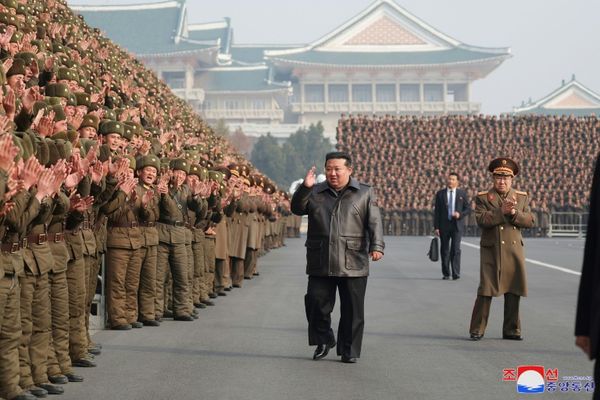
Ramallah (Palestinian Territories) (AFP) - Palestinians on Thursday buried the lead negotiator of the Oslo accords with Israel, Ahmed Qorei, following his death at the age of 85.
Palestinian president Mahmud Abbas paid tribute to Qorei, who died on Wednesday evening, as an indefatigable "fighter" for the Palestinian cause after their ruling Fatah party announced his death.
Better known at home under his nom de guerre Abu Alaa, Qorei rose to international prominence as the lead Palestinian negotiator in secret talks that led to the historic White House handshake between Palestinian leader Yasser Arafat and Israeli premier Yitzhak Rabin in September 1993.
A banker by training, Qorei had previously been in charge of economic affairs within the Palestine Liberation Organization, using his skills to boost PLO finances.
After holding several ministerial posts in the fledgling Palestinian Authority, Qorei was elected speaker of parliament after the first Palestinian legislative elections in 1996.
He retained that role until 2003 when he was named prime minister, replacing Abbas who had stepped down.
At this time, the second Palestinian intifada, or uprising, raged for five years and the peace accords that Qorei had helped negotiate were increasingly unpopular among Palestinians.
In parliamentary elections in 2006, the ruling Fatah party suffered a shock rout, losing by a landslide to Islamist militant group Hamas, whose nominee Ismail Haniyeh replaced him as prime minister that March.
When peace talks with Israel resumed in 2007-8, Abbas turned to Qorei once again as lead negotiator.
But as the talks foundered amid mutual accusations of broken promises and persistent Israeli settlement expansion in the West Bank, Abbas replaced him with the late Saeb Erakat.
Senior Palestinian officials including Abbas and Hussein al-Sheikh, secretary general of the PLO's executive committee, attended Qorei's funeral in Ramallah on Thursday.
The office of the US envoy to the Palestinians, George Noll, expressed its "deepest condolences" at Qorei's passing, adding that he had "many discussions with Mr Abu Ala on Palestinian political history".
In his later years, Qorei increasingly despaired of the viability of a two-state solution, given the scale of Israeli settlement expansion in the West Bank, calling instead for a single bi-national state.







